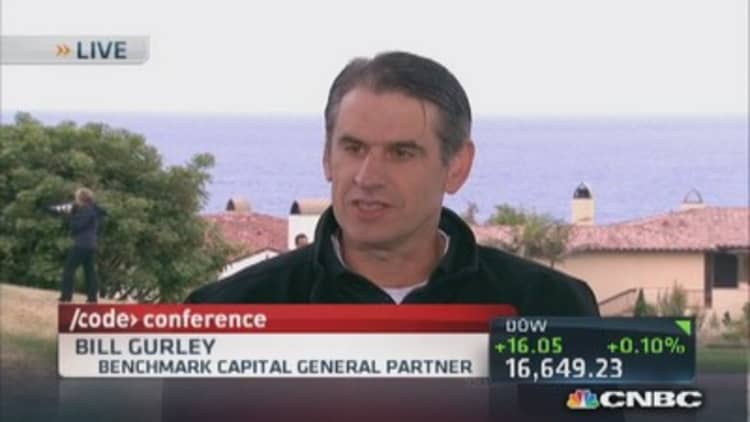In the technology world, no question comes up more frequently these days than—"Are we in a bubble?" And while it's not up to us at CNBC to answer that question, we do sometimes happen upon little nuggets—data, anecdotes, tweets and the occasional wild party that can possibly help others make their own assessments. When we do, we'll share them in a little column we're calling: "Bubble watch?"
Wonder why start-ups are pulling in outsized financing rounds at an unprecedented rate even though it's hard to imagine how they can put all that dough to work? Research published Thursday from CB Insights sheds some light on the matter.
Among the 20 primary reasons that start-ups fail, the No. 2 cause is that they "ran out of cash," New York-based CB Insights said in a report. The analysis was a follow-up to a post the firm put out in January (and updated in June and again in September) that pulled together the stories from 101 failed start-ups. This time, CB Insights went through all the reasons the companies—or tech blogs—gave for their misfortunes and determined what were the most frequently cited explanations or excuses.
"Despite multiple approaches and incarnations in pursuit of the ever elusive product-market fit (and monetization), Flud eventually ran out of money—and a runway." CB Insights pulled that from a TechCrunch post a year ago on the demise of news-reading app Flud. Two months earlier, one of Flud's co-founders told VentureBeat that "we ran out of money and hence time."
Read MoreMeetings in a $400,000 Bentley
According to CB Insights, 29 percent of start-ups cited money and how it should be spent as a reason for failure. The only more common cause for trouble, from 42 percent of companies, was that the market didn't need the product they were building. Other problematic issues were not having the right team (23 percent), getting outcompeted (19 percent) and pricing or cost issues (18 percent). Companies provided more than one reason for failing, so the total exceeds 100 percent.
How and when to raise money has always been a critical issue for start-up executives, who have to weigh the benefits of putting cash in the bank versus maintaining greater control and a bigger stake in their company. In the current environment, with venture capitalists pouring money into start-ups at the highest rate since the dot-com bubble, it seems that any mobile app with a hint of momentum has investors knocking down doors to get in. But these cycles come and go, and one common refrain in Silicon Valley is that it's always better to raise money when you don't need it than when you do.
Advice from a VC

It's also possible to raise too much money. Inexperienced executive teams sign up some customers, raise a big round and get a little out of control with high-priced office space and Google-esque perks. Then, for whatever reason, growth slows and all that capital quickly disappears.
Ben Yoskovitz, the founder of Standout Jobs, one of the companies cited by CB Insights, wrote a postmortem in 2010. "I raised too much money, too early for StandoutJobs (~$1.8M). We didn't have the validation needed to justify raising the money we did." He went on to say that "raising money felt like winning."
Or this in February from SkyRocket's Michael Thomas on his company's failure: "When the checks were coming in it was easy because my vision was constantly validated by dollar signs. But one day something changed. Money stopped coming in the door."
And when that happens, investors tend to stop knocking.


